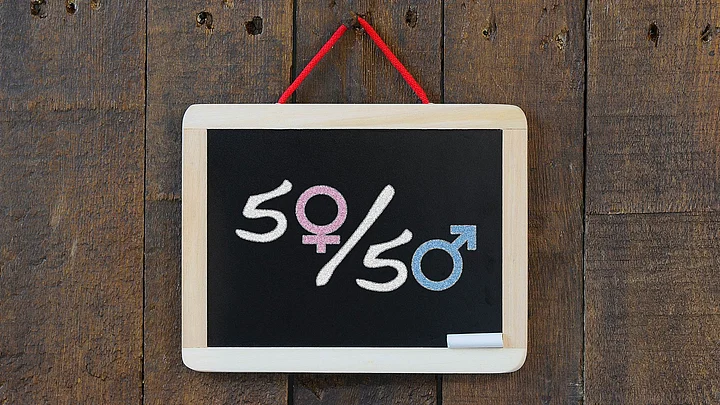‘Do not let us off the hook; keep our feet to the fire’. These were the words of the UN Secretary General Mr Antonio Guterres when he promised to personally lead the global body towards greater gender equality.
As the world observes the start of ‘16 Days of Activism’ against gender-based violence (from 26 November 2018), an independent United Nations system-wide survey on sexual harassment is taking place around all UN country offices. It is the first of its kind, and it demonstrates the UN’s resolve to eradicate sexual harassment and ensure a safe and inclusive workplace for all personnel across its offices.
Sexual Harassment Is All-Pervasive
The UN initiative is in lock-step with the theme for this year’s ‘16 Days of Activism’ – ‘Orange the World; Hear Me Too’. The aim is to raise awareness about violence against women and its impact on a woman’s physical, psychological, social and spiritual well-being.
The #MeToo movement heralded the coming out of women across various professions and work forces, against their (primarily) male perpetrators, breaking a decades-old silence that they were previously compelled to live with.
Too busy to read? Listen to this instead.
Statistics indicate that more than one in three women across the world have experienced physical or sexual violence, usually perpetrated by an intimate partner. In a study by Edison Research and Marketplace on sexual harassment, 27 percent of women and 14 percent of men reported that they had been harassed at some time at their workplace.
Poor Implementation of Gender-Based Laws & Framework
Despite the progressive policy commitments and institutional frameworks on gender equality and women empowerment, implementation remains slow and inconsistent. While the HeForShe campaign has gained high momentum since its launch in September 2014, a lot still needs to be done to bring men on board in addressing sexual harassment towards women in public and private spaces.
Such campaigns have brought considerable gains towards raising consciousness and self-assurance for women. Increasingly, they are speaking out against the indignities of work-related sexual advances and intimidation.
It is time for another crescendo to rise as we consider the multiple dimensions of gender violence.
This is the cost that countries are paying when women and girls are denied the chance to live to their full social and economic potential.
Impact of Gender Inequality on Indian Economy
Consider the aspect of employment: according to a World Bank report released this year, countries are losing USD 160 trillion in wealth because of differences in lifetime earnings between women and men. This amounts to an average of USD 23,620 for each person.
In India, reports indicate that every 4 in 10 women have experienced some form of domestic violence. In a country where physical and psychological abuse is all pervasive and rampant, the Sexual Harassment of Women at the Workplace (Prevention, Prohibition and Redressal) Act, 2013 has done little to alleviate gender-based discrimination and violence.
The Act requires an employer to set up an Internal Complaints Committee (ICC) at each office that has more than 10 employees of any gender. However, a survey done some years back found that 7 in 10 working women did not report workplace harassment, demonstrating a disturbing lack of confidence in the system.
By one estimate, gender inequality may have reduced India’s economic growth by almost 4 percent annually over the past 10 years.
Higher the Education, Lower the Rate of Child Marriage
India has the highest number of child brides in the world. It is estimated that 27 percent of girls in India are married before their 18th birthday. It is said that the return on one year of secondary education for a girl correlates with as high as a 25 percent increase in wages. In addition, ensuring that all girls get at least secondary education in India, would reduce child marriages by more than half.
All these demonstrate the cyclical benefits, from one generation to the next, of education as an intervention strategy. However, while evidence abounds that parity with women is the best driving force for economic growth, wealth creation and poverty eradication, women’s rights are being “reduced, restricted and reversed”, according to UN Secretary-General, Mr Guterres.
Change Must Begin at Home
There cannot be any illusions about the enormity of the task ahead. Misogyny is a deep-rooted expression of male entitlement that often excuses sexual harassment and violence, even at times by the survivors themselves.
Such attitudes are often rooted far beyond the reach of social media hashtags. Shifts in attitude must begin at home, before we can expect corporate bodies and national governments to enact gender-sensitive legislation.
Women shouldn't have to feel 'grateful' for opportunities, says the UN DSG Amina Mohammed in a recent BBC interview. So true. Ultimately, countries need to begin breaking structural barriers, not just with gender equality as a lofty ideal but as a deliberate strategy for sustainable development.
(Siddharth Chatterjee is the United Nations’s Resident Coordinator to Kenya. He tweets at @sidchat1. This is an opinion piece and the views expressed above are the author’s own. The Quint neither endorses nor is responsible for them.)
(At The Quint, we question everything. Play an active role in shaping our journalism by becoming a member today.)
